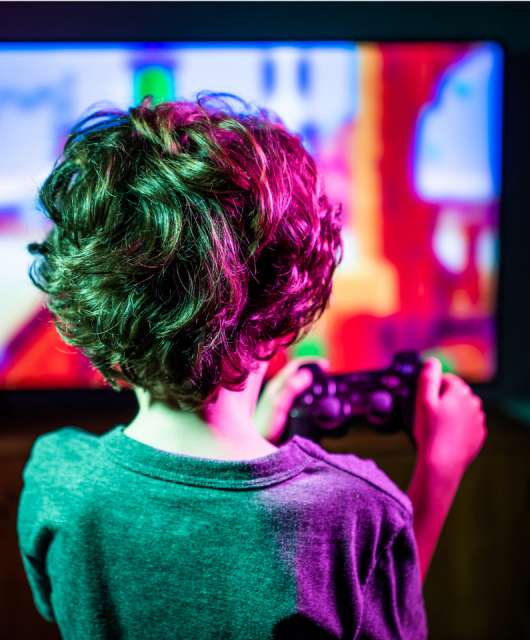In the past, it was not easy for parents to get children back home after a long day of playing outside. The little ones enjoyed the outdoors so much that they didn’t want the day to end. Such behavior kept creating a challenge for parents who wanted them back home. In the last decade, things have changed, and the outdoor activities were replaced by spending time in front of the computer or the TV playing games.
Suddenly, developing a social media presence or high ranking in online game stats started sounding more appealing to youngsters than playing Marco Polo outside. In some cases, video gaming obsession gets out of hands and converts to video game addiction. Excessive gaming can lead to a type of addiction that could be compared to the addiction alcoholics and gamblers experience – the World Health Organization calls it gaming disorder.
What is considered excessive gaming?
While the meaning of excessive gaming may differ from children’s age and personality, experts confirm that your child might have a video game addiction if your little one spends more than 80 hours per week gaming. Here in the US, average students spend about 6-7 hours at school every weekday. With 80 hours of gaming a week, the time your children spend gaming would almost double the hours usually spend at school, which constitutes a problem that may need to be addressed.
When to worry and when to let it slide?
Video gamers often wait for game releases for months and even years. Even if your teenager suddenly starts spending tens of hours a week gaming, it may be only because a new game has hit the market. Seeing a child spend more than 10 hours a day gaming, is certainly not a good sign, but it may not be as alarming. After a week or two, your child will get bored with the game and everything will get back to normal. However, if this behavior continues for a longer period, you may want to consider seeking professional help. However, screen time is not the only sign that may suggest that your kid may have a video gaming addiction.
It is not an addiction if your kid can stop playing when they/you want them to stop. Similar to watching a lot of TV or eating chocolate, your kid might simply be enthusiastic about a particular video game. You do not want to prevent your little one from being entertained or happy, do you? However, if a child has nothing else to say but discuss the latest video game and gets defensive or angry when you ask them to stop, that may be a sign that things are not going in the right direction and require your intervention.
If you see your child sacrificing basic needs such as sleep and you notice that the food and drinks schedule is getting messed up, you may have to address the issue. While you don’t have to assume your child is an addict right away, if such behavior transforms into malnutrition and poor grades at school, and your kid does not acknowledge the problem by trying to downplay or hide the time spent in front of the screen, you may have a video game addict at home and it may be time to talk to a specialist.
Researchers have confirmed on multiple occasions that video games can affect your children’s brain – it may improve multitasking skills and have an overall positive effect. Still, it may also lead to long-lasting adverse effects that can alter life in general, such as poor grades at school or malnutrition. If your kid seems happy, does not get explosive when asked to stop playing video games, and has good grades, you most likely do not have e problem – on a contrary – video gaming might actually be helping your little one develop better.
Video gaming is often done online where players can communicate with each other, so keeping an eye on your little one is always advisable as those chat channels might sometimes be filled with inappropriate language or imagery.
Having antivirus software with parental control functions on all connected devices would undoubtedly give you peace of mind should you want to stay on top of your children’s online presence and behavior, and video gaming habits.








